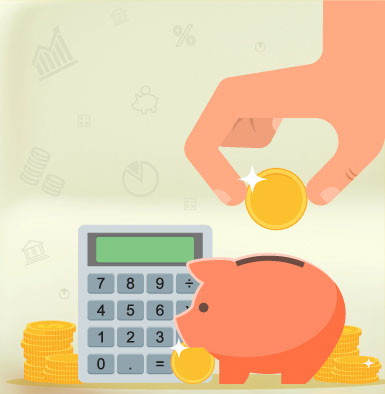A Look At The Current State of the Ghanaian Real Estate Market - 2025
A Look At The Current State of the Ghanaian Real Estate Market - 2025
- by PropHunt Admin
- On 25-02-2025
- at 12:02 PM

The 2024 housing market in Ghana was characterised by limited supply, a decrease in home sales, and affordability woes spurned on by high interest rates. Despite these adversities, there are still positive signs indicating a strong comeback since the Ghanaian real estate market continues to evolve and adapt to changing dynamics. Many prospective homebuyers and sellers hold the view that interest rates would drop, leading to increased demand in real estate transactions.
If you’re still wondering whether 2025 will be the year to buy or sell a home or what to expect heading into the typically busy homebuying season, these insights and trends will help you make sense of the current real estate market in Ghana. The real estate market of Ghana is one of the highly sought after within the sub-Saharan African countries and real estate investors all over the world are looking to tap into it.
The Current Real Estate Market Conditions
Home sales decreased in the whole of 2024
Real estate being part of the services sector in Ghana remains a significant contributor to the country’s GDP. According to the Ghana Statistical Service, the fourth quarter of 2024 indicates that real estate recorded a real GDP growth of 1.9% (year-on-year) compared to the 3.3% recorded same time in 2023.
In Accra, existing home sales decreased by 5.2% in 2024. Real estate agents and brokers noted that home momentum has increased as buyers acclimate to a higher interest rate environment. They expatiated further that more homebuyers have entered the Ghanaian market as the economy continues to show positive sides and create job opportunities, and housing inventory grows compared to the same time last year.
The Housing Inventory Is Up To Match The Deficit, But Sales Remain A Challenge
While there is an increase in the number of available houses for sale in the country, the time these houses stay on the market before being sold or rented has been overwhelming. Also, the deficit in housing is said to be slowly matched by an increase in housing inventory. Similarly, experts in the housing industry have previously predicted that housing inventory is expected to increase this year due to market conditions, even if mortgage rates aren’t expected to drop anyway.
Both homebuyers and sellers in Accra have been on the sidelines lately—buyers because of high mortgage rates and sellers holding off because those buyers aren’t buying. While homebuyers wait for relief, top agents surveyed by PropHunt reported that Ghanaian homebuyers particularly feel they are priced out and hoping for a way to enter the market. There are no deliberate government policy promises to decrease home prices in Ghana, making it even more difficult for young couples to own homes.
The 2025 Real Estate Market And The Economic Indicators That Affect It
The Ghanaian housing market is influenced by so many economic factors, of course, inflation, the exchange rate, and the people’s ability to save are what is severe in many developing economies. More so, housing prices in Ghana are driven by the people’s ability to pay, desire to own, and the cost to replace. Let’s look at these factors to understand how they shape the current residential real estate market in Ghana.
Inflation
Inflation is a measure of how prices of goods and services change over time for people to purchase. In every economy, a certain level of inflation is expected and even healthy in a given year. The Bank of Ghana aims for 8.0 +2% this year. However, the current inflation rate in Ghana is 23.8%. Though inflation has cooled from its massive 54.1% peak in December 2022, home prices are still expected to suffer. Inflation can affect the Ghanaian housing market in many ways, putting pressure on home prices, home values, mortgage rates, and construction costs.
Exchange Rate
The exchange rate affects the stability of the Ghanaian real estate market. For example, if the Ghana cedi weakens, the prices of houses in the country’s local currency will increase in order to maintain the same international value. The exchange rate fluctuations indeed affected the economy in 2024 which led to low home sales. In December 2024, the cedi was trading against the dollar at GHC15.oo, this created uncertainty in the Ghanaian real estate market, making it difficult for both buyers and sellers to accurately assess property values and make informed decisions.
Interest rates
It has been demonstrated several times that interest rates have a strong effect on real estate prices in Ghana. Ghana experienced the highest interest rates on mortgages and commercial loans in 2024. According to the Bank of Ghana, the average lending rate as of December 2024 stood at 30.25%. Such high rates make houses less affordable because they lead to higher mortgage rates.
Typically changes in real estate prices in Ghana mirror changes in the local economic opportunity, but things like outside investors buying homes in the real estate market also bring home values up, resulting in the inability of local buyers to acquire homes because there are been priced out..
What Should You Do As An Investor?
As we’ve seen, the 2024 real estate market in Ghana was tough, and 2025 might be facing similar challenges. Lending rates, inventory, and home sales aren’t likely to improve much, and home prices are expected to continue the upward trend. However, you do have options, and PropHunt is here to help. If you’re thinking of investing in the Ghanaian real estate market — whether as a buyer, a seller, or both — always consider the inflation rate, exchange rate, and interest rate because these are the drivers of the real estate market in Ghana.

 French
French




